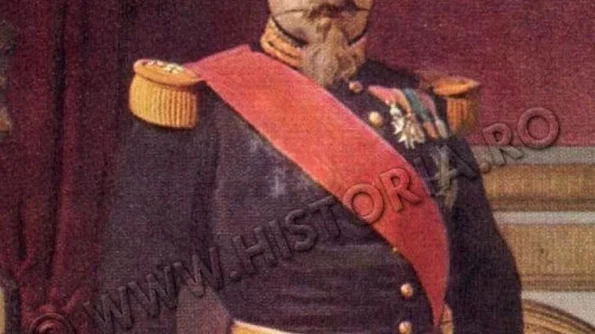
Napoleon III – The Emperor Who Fell Into Oblivion
Modern France is the result of the combined work of a series of leaders (emperors or presidents) which began at the end of the 18thcentury with the French Revolution, continued with Napoleon I and ended in the 1960s with President Charles de Gaulle. Yet, there is one among them, namely Napoleon III, whom the French history has forgotten or is trying to forget.
The last emperor of France fell into oblivion and was disregarded for his faulty foreign policy (which culminated with the Franco – Prussian war and the loss of Alsace – Lorraine), although he had real merits in the development of the French state.
The Last Heir of the Great Napoleon
Born in 1808, Napoleon III was known under the name Louis – Napoleon before becoming emperor. He was the son of Louis Bonaparte, Napoleon I’s brother. His father had been the King of the Netherlands for some years, before the country was annexed by France. Louis – Napoleon was raised in Switzerland and Germany and for some time, he lived in Northern Italy. Here he took part in the actions of the Carbonari, a group which was fighting against the Austrian domination over Northern Italy. Louis-Napoleon’s relation to the Italian independence movement would influence his subsequent foreign policy:he would support the Italian war against Austria.
A Bonapartist movement was formed during the July Monarchy (Louis-Philippe’s reign between 1830 and 1848) which aimed at the restoration of a Bonaparte on the French throne. According to the law of succession, Napoleon I’s son known as Napoleon II was the legitimate heir, however, he was held prisoner at the Austrian Court. Thus, Bonapartists would aid Napoleon’s nephew, Louis-Napoleon, to organize several (failed) coups d’etat.
The New Empire
The Second French Republic was formed after the 1848 ousting of the king Louis-Philippe. Louis-Napoleon won the December election by an impressive majority of 75%. Initially, he enjoyed the support of the monarchists (yet, they saw him as a temporary leader until the next Bourbon Restoration) as well as the majority of workers.
However, after a conflict with the Parliament, the Prince-President initiated a coup d’état on December, 2nd, 1851 when France commemorated 47 years since the coronation of his uncle. Despite Louis-Napoleon’s intentions, the coup ended with a blood bath on the streets of Paris.
Exactly a year after the coup, on December, 2nd, 1852, the French Second Empire was founded and the President Louis-Napoleon became the Emperor Napoleon III. He is the only person to have been both the first president-elect of France as well as its last monarch.
Yet, unfortunately for Napoleon III, his reign “started and ended badly” (Lucian Boia, Napoleon III the unloved, p. 21). His rule began with the coup d’état which gave the impression that an authoritarian, repressive regime was instituted and it ended with the disastrous defeat at Sedan.
His artwork – a magnificent Paris and the beginning of the conflict with Germany
Napoleon III’s greatest achievement was France’s phenomenal economic and industrial development. However, his main legacy is Paris, the Capital of France as we know it today with its impressive neo-classic buildings and large boulevards. Nowadays Paris is the result of the Napoleon III’s modernizing effort.
Although the domestic Napoleonic policy had good results, almost all French foreign actions met with failure. Even though Napoleon III claimed that “the Empire means peace”, he was involved in many conflicts in Europe and on other continents. The Emperor was a supporter of the nationalities principle and thus, he aided the Italian and Prussian unification movements. Yet this backfired:a united Germany proved to be France’s greatest enemy. It brought about the ousting of the last French emperor:Napoleon III lost the French leadership after the 1870 disastrous defeat.
After the defeat in the war with Prussia, France also lost the provinces of Alsace – Lorraine. It entered the French collective mentality as a great failure and it ensured Napoleon III the contempt and oblivion of the entire French nation. Even today, the last monarch of France is not very popular with the French public. He does not enjoy the same status as his uncle who is at the top in the French pantheon of heroes.
Further reading:Lucian Boia, Napoleon III The Unloved, Humanitas, Bucharest, 2008















